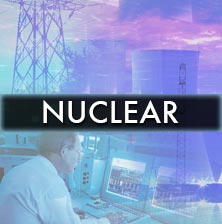The following is a small selection of items recently published by EPRI. To view complete lists of your company-funded research reports, updates, software, training announcements, and other program deliverables, log in at www.epri.com and go to Program Cockpits.

This report examines the potential to use hydrogen to decarbonize heat in the United Kingdom. This could involve producing hydrogen with zero-carbon electricity and delivering it via the natural gas network.

Impacts of extreme cold temperature events in 2019 were felt across the U.S. electric power system. This brief paper and infographic examine impacts of recent cold temperature events on the U.S. electric power system, revealing how lessons learned from previous events had been applied and pointing to new challenges.

This study characterized emissions changes in coal and natural gas fleets from 2008 to 2016 as a result of shifts to or from baseload operations. It includes a detailed literature review of the effects of transient operational modes along with analysis of emissions trends using the U.S. Environmental Protection Agency Air Markets Program Data and datasets.

EPRI is developing models to investigate two key questions related to the performance and risks of geologic storage of carbon dioxide: how geologic variability affects the storage capacity of underground formations and what impact these variations have on the cost of the technology.

This research analyzes NO2 and NOx emissions data from various types of power plants across the United States. The goal was to provide recommendations for in-stack NO2/NOx ratios that can be used in modeling for compliance with National Ambient Air Quality Standards for NO2.

With reduced fuel failures, an aging workforce, and the growing importance of difficult-to-detect fuel failure cases in the nuclear power industry, plant operators can benefit from additional guidance on failure evaluation. EPRI has separated its fuel reliability handbook into boiling water reactor and pressurized water reactor volumes (1) to educate new personnel about recent failures, (2) evaluate and recommend metrics for determination of failures, and (3) provide additional guidance on post-failure planning.

A remote device management system can update, secure, monitor, and analyze all the remote intelligent electronic devices in the power system. Drawing on results from a survey of utilities, this research gathered and summarized requirements for such a system.

This paper examines various methods of third-party, cloud-based hosting of sensitive utility data along with the implications of relevant North American Electric Reliability Corporation Critical Infrastructure Protection standards.

This study compares the cost-effectiveness of renewable energy standards and technology-neutral policies for reducing carbon dioxide emissions in Minnesota’s electric power sector through 2050.

This report presents two 2018 EPRI webcasts that provide electric utility health and safety professionals with practical suggestions for management of worker heat stress.

This study examines the potential impacts of reduced inertia on frequency stability in the world’s electric power grids and reviews emerging solutions.

This report examined the use of monitoring and diagnostics methods to detect and identify faults in solar photovoltaic systems and to inform maintenance decisions.